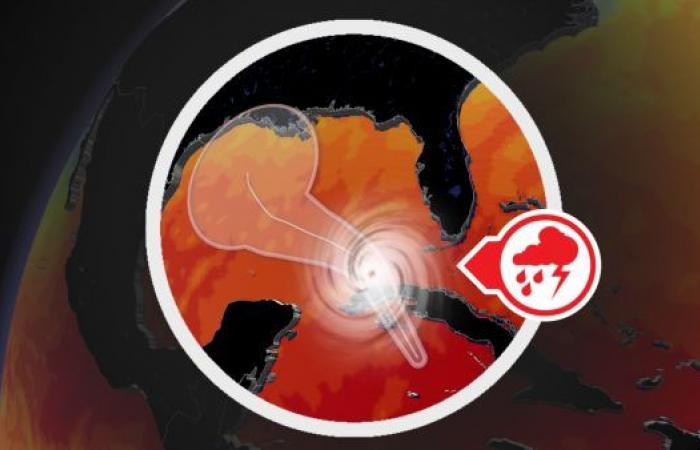Published on November 6, 2024 at 4:56 p.m.
Hurricane season is normally almost over by early November. But Rafael doesn’t seem to want to follow the norms.
Major hurricane
On Tuesday evening, Tropical Storm Rafael became a hurricane, with sustained winds of 120 km/h. On Wednesday morning, winds were blowing at 160 km/h, enough for the hurricane to be considered category 2. And on Wednesday afternoon, Rafael became a major hurricane, reaching category 3. In Cayo Largo, a seaside resort in Cuba, a gust of 133 km/h was recorded.
Varadero in the trajectory
The island of Cuba should receive Rafael in the face on Wednesday. It is the western part of the country that will be most affected by the passage of the hurricane. The beaches of Cayo Santa Maria, Cayo Guillermo, Cayo Coco and the Holguin area should fare well, but for vacationers in Varadero the situation will be more intense. Havana is right on Rafael’s crosshairs. Varadero is just over 100 km east of the capital.
Rafael should lose intensity over the next few days to finish his race in the Gulf of Mexico. However, some models predict a trajectory towards Louisiana.

Key West at risk
This vacation region will be lashed by gusts over 100 km/h and could receive nearly 50 mm of rain. Around Havana, flooding is therefore possible, and landslides can also occur. The situation will certainly not help this country which has had numerous problems with its electricity network in recent days. The Key West region could also suffer the effects of Rafael’s passage. There is a risk of violent thunderstorms and even tornadoes.

Informed forecasts
Rafael is the 17th named storm and 11th hurricane in the Atlantic basin. It becomes the 5th major hurricane of the season. Remember that in May, experts from Colorado State University predicted a more active season than average. After a prolonged period of calm in July and August, the storms continued from the beginning of September. Experts had predicted 23 named storms, 12 hurricanes, including 6 major ones. With 17 storms, 11 hurricanes, including 5 major ones, we have to admit that they got it pretty right.
With the collaboration of Kevin Cloutier, meteorologist.
SEE ALSO: Snow in South Africa, although almost in summer
Canada






